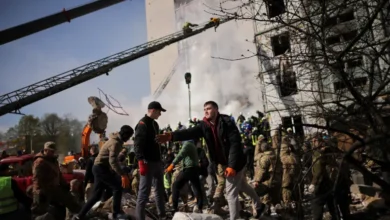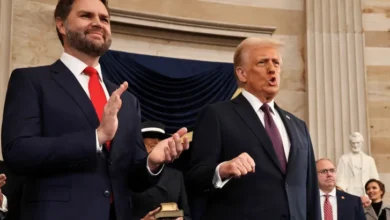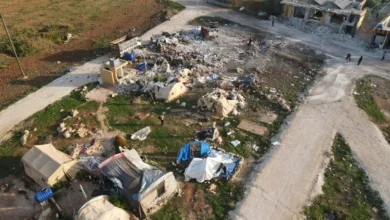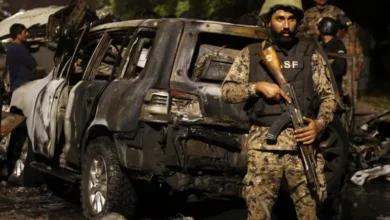Trump at odds with US military veterans over snarled Afghan relocations
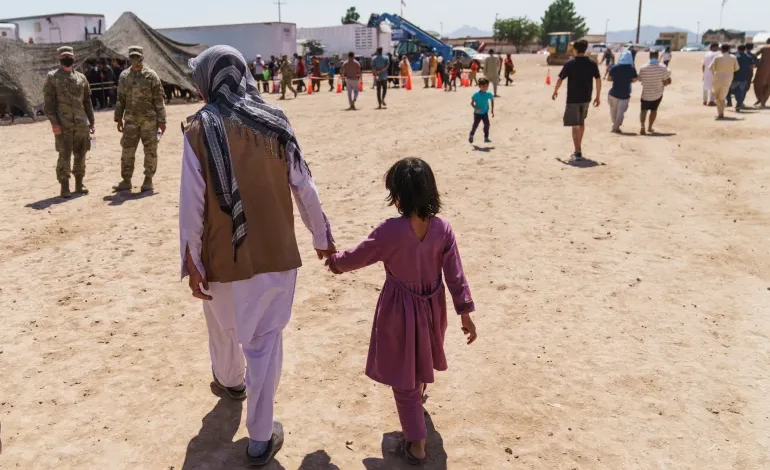
When Ruqia Balkhi arrived in the United States in September 2023, she was greeted by a federally funded resettlement agency that helped her launch a new life.
Balkhi, a 55-year-old engineer, was one of the thousands of Afghans who worked alongside the US military during its two-decade-long intervention in her home country.
But after the fall of the US-backed government in 2021, it became unsafe for her to stay in Afghanistan under Taliban leadership.
So she left for the US. During her first 90 days in the country, Balkhi received temporary housing, language lessons, basic goods, mental health support and guidance on enrolling her 15-year-old son in a local school in Virginia.
However, when her husband, Mohammed Aref Mangal, arrived under the same visa programme in January, those services had been abruptly halted. President Donald Trump had just been inaugurated, and the US had tightened restrictions on federal funding and immigration.
“It was completely opposite for my husband,” Balkhi said of the circumstances he faced.
Advocates say her family’s story illustrates how Trump’s broad executive orders might have repercussions even for areas of bipartisan support.
Veteran organisations have largely supported efforts to bring Afghan citizens to safety in the US, particularly if they worked with US forces or the US-backed government.
But in the first days of Trump’s second term, the government paused the US Refugee Admissions Program (USRAP), leaving some already approved Afghan applicants stranded abroad.
Another executive order halted foreign aid. That, in turn, has caused interruptions to the Special Immigrant Visa (SIV) programme for Afghans who worked with the US military, like Balkhi and her husband.
Balkhi explained that her husband was luckier than most, given that he had a family already established in the US. But she expressed anguish for those entering the country without the same support system she received.
“Without help from the resettlement agency, I don’t think we would have been able to survive,” she told Al Jazeera in Dari, speaking through a translator provided by the Lutheran Social Services of the National Capital Area.
Some critics see the issue as a test of just how durable Trump’s hardline policies will be when their full impact becomes clear.
“My request from the new government is that they not forget their commitments to Afghan allies and Afghan immigrants,” Balkhi said.
An early-term ‘mistake’?
Trump’s campaign promises made no secret of his desire to overhaul the US immigration system, to fend off what he decried as a migrant “invasion”.
But his criticism of the chaotic US withdrawal from Afghanistan in 2021 had sparked hope among those advocating for services for Afghans involved with the US military.
“President Trump campaigned on a bunch of stuff related to Afghanistan, particularly how bad the withdrawal was,” Shawn VanDiver, the founder of #AfghanEvac, an organisation that supports Afghan resettlement.
“So I just don’t believe that he would do that and then not try to help our allies. I’m just hoping this is a mistake.”
In his latest bid for re-election, Trump repeatedly expressed sympathy for those caught up in the August 2021 troop withdrawal, during which a suicide bombing claimed the lives of 13 US service members and 170 Afghans.
Trump also blasted former US President Joe Biden for overseeing the incident, which he called the “Afghanistan calamity”. The day before his inauguration, on January 19, Trump pointedly visited the grave of three soldiers who died during the withdrawal effort.
VanDiver said Trump’s actions from here forward will be critical. If his administration changes course on Afghan resettlement, VanDiver sees that as a hopeful sign.
“But if they don’t change anything, well, then you can be left to conclude that maybe they did mean to do it.”
While Trump’s orders have not directly stopped processing under SIV, they have snarled a pipeline for those seeking relief under the programme, which requires federal funding to operate.
Earlier this month, 10 national organisations that rely on federal support to provide “reception and placement services” received an order to stop work immediately — and incur no further costs.
